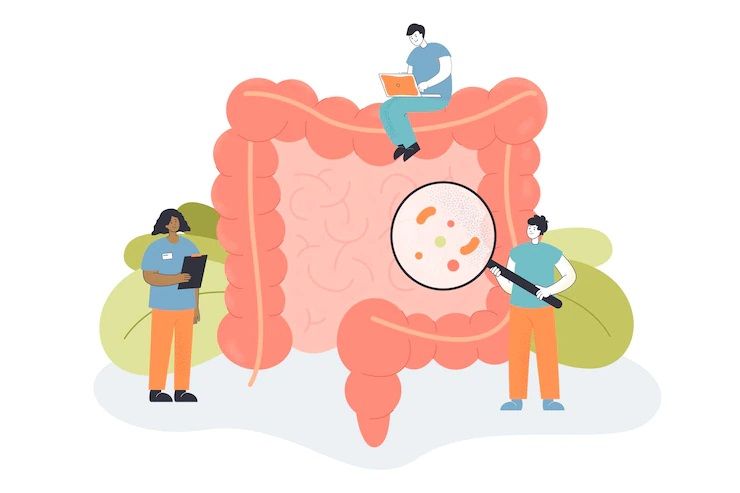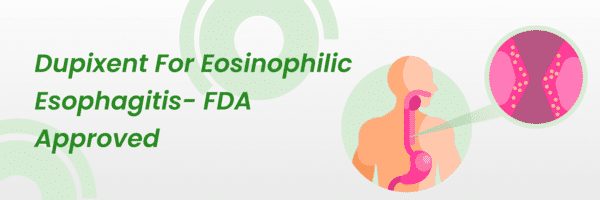Gut health plays a vital role in maintaining a robust immune system. The gut and the immune system are intricately connected. They affect overall health, influencing digestion and disease resistance.
Did you know?
About 70% of our immune system is in the gut.
How does gut health impact the immune system?
The gut is home to trillions of bacteria, viruses, and fungi, known as the microbiome. This complex ecosystem is crucial for digestion, nutrient absorption, and immune function. The gut-associated lymphoid tissue (GALT) contains many of the body’s immune cells, which shows the gut's big role in immunity. Gut health impacts the immune system by balancing good and bad bacteria. A healthy gut microbiome boosts immune cell production. These cells, like T-cells, defend the body from infections. On the other hand, an imbalanced gut can weaken the immune response and increase susceptibility to diseases.
Understanding this relationship is essential for anyone looking to boost immunity and maintain a healthy lifestyle.
Dr. Shashank Agrawal, one of the top gastroenterologists in ghaziabad, states, "The gut houses diverse bacteria that profoundly influence immune function. A balanced gut microbiota supports a resilient immune system, while imbalances can weaken it, leaving us more vulnerable to illness. Prioritizing gut health through diet, probiotics, and lifestyle choices is critical to nurturing our body's defence mechanisms."
A healthy gut microbiome supports the immune system by making short-chain fatty acids (SCFAs). SCFAs cut inflammation, boost the gut barrier and help immune cell growth. They also help produce antibodies and regulate immune responses.
Do you know that a healthy gut isn’t just about digestion? It's the key to a resilient immune system. Book your appointment today with the top Gastroenterologist and learn how to make the best decisions for your gut health.
Can gut health affect your overall health?
Yes, gut health can affect overall health. Poor gut health can lead to digestive issues, chronic inflammation, and autoimmune diseases. It can also affect mental health. Imbalances in gut bacteria are linked to conditions like depression and anxiety.
Can probiotics enhance immune function?
Yes, probiotics can enhance immune function. Probiotics are beneficial bacteria that help maintain a healthy gut microbiome.
- They boost the immune system by promoting good bacterial growth and reducing inflammation.
- They also strengthen the gut barrier, which stops harmful pathogens from entering the bloodstream.
- Probiotics can restore the natural balance of gut bacteria, which may become imbalanced due to illness, medication, poor diet, and more. This balance is crucial for maintaining a robust immune system and overall health.
- Probiotics may also help prevent and treat diarrhoea, a common side effect of antibiotics that disrupt the gut’s bacterial balance.
- Additionally, they can interact with immune cells and influence the composition of intestinal microflora, thereby improving immune functions and presenting health-promoting and immunomodulatory properties.
Experiencing uneasy symptoms after eating any meal? Recognizing the signs of poor gut health can help you take action sooner.
Signs of poor gut health that affect Immunity
- Digestive Issues: Experiencing frequent bloating, constipation, diarrhoea, or stomach discomfort.
- Frequent Infections: Getting colds, flu, or other infections more often due to a weakened immune system.
- Chronic Fatigue: Feeling tired and drained after a full night’s sleep.
- Skin Problems: Developing acne, eczema, or rosacea due to inflammation in the gut.
- Food Intolerances: Adverse reactions to certain foods lead to discomfort and digestive issues.
- Brain Fog: Difficulty concentrating, forgetfulness, or experiencing mental fatigue.
- Mood Imbalances: Increased anxiety, depression, or mood swings are often linked to gut health.
- Autoimmune Conditions: Poor gut health can trigger rheumatoid arthritis, lupus, or celiac disease.
How can diet affect your gut microbiome and immune health?
Diet significantly affects the gut microbiome and immune health. A diet high in processed foods and sugars can upset the balance of gut bacteria, causing inflammation and weakening immunity. However, a high-fiber diet of fruits and vegetables and fermented foods promotes a healthy gut and strengthens the immune system. A healthy gut microbiome supports the immune system by making short-chain fatty acids (SCFAs). SCFAs cut inflammation, boost the gut barrier and help immune cell growth. They also help produce antibodies and regulate immune responses.
Best foods for gut health and immunity
- Fermented foods like yogurt, kefir, sauerkraut, and kimchi.
- High-fiber foods like fruits, vegetables, legumes, and whole grains.
- Foods rich in prebiotics, such as garlic, onions, leeks, and asparagus.
- Probiotic supplements can help maintain a healthy gut microbiome.
What role does fiber play in gut health and Immunity?
Fiber is crucial for gut health and immunity. It feeds helpful gut bacteria, which make SCFAs. These fatty acids support a healthy gut barrier and reduce inflammation, thus boosting the immune system. High-fiber foods, such as fruits, vegetables, and whole grains, are vital. They are needed to maintain a healthy gut microbiome.
What are the long-term effects of poor gut health on immunity?
- Chronic Inflammation: Persistent inflammation can lead to various health issues.
- Autoimmune Diseases: Increased risk of developing autoimmune conditions such as rheumatoid arthritis, lupus, and multiple sclerosis.
- Digestive Disorders: There is a higher likelihood of chronic digestive problems like irritable bowel syndrome (IBS) and inflammatory bowel disease (IBD).
- Weakened Immune Response: Reduced ability to fight off infections and illnesses, leading to more frequent and severe illnesses.
- Mental Health Issues: Long-term gut health problems can contribute to anxiety, depression, and other mental health disorders.
- Nutrient Deficiencies: Impaired absorption of essential nutrients, leading to deficiencies and related health problems.
- Metabolic Disorders: An imbalanced gut microbiome increases the risk of obesity, type 2 diabetes, and other metabolic conditions.
Conclusion
Maintaining gut health is crucial for a strong immune system and overall well-being. Understanding the link between the gut and the immune system is key. By making diet and lifestyle changes, you can improve your gut health and boost your immunity. Eat fibre-rich foods and probiotics, and manage stress. Do these daily to support a healthy gut and a strong immune system.
A diet that supports your gut microbiome can transform your health! To understand more about a diet that boosts your immunity, schedule your consultation with an expert gastroenterologist now!
References:
https://www.enterogermina.com/en-za/gut-health/immunity
FAQs
1. How quickly can improving gut health boost immunity?
Improvements in gut health can start to boost immunity within a few weeks. However, big changes may take several months of steady diet and lifestyle improvements.
2. Are there any side effects of taking probiotics?
Some people may have minor digestive discomfort. This includes gas or bloating when starting probiotics. These symptoms usually subside as the body adjusts.
3. Can antibiotics affect gut health and immunity?
Yes, antibiotics can disrupt the gut microbiome. They kill both harmful and beneficial bacteria. This can weaken the immune system. Use antibiotics only when needed. Take probiotics to restore gut balance.






